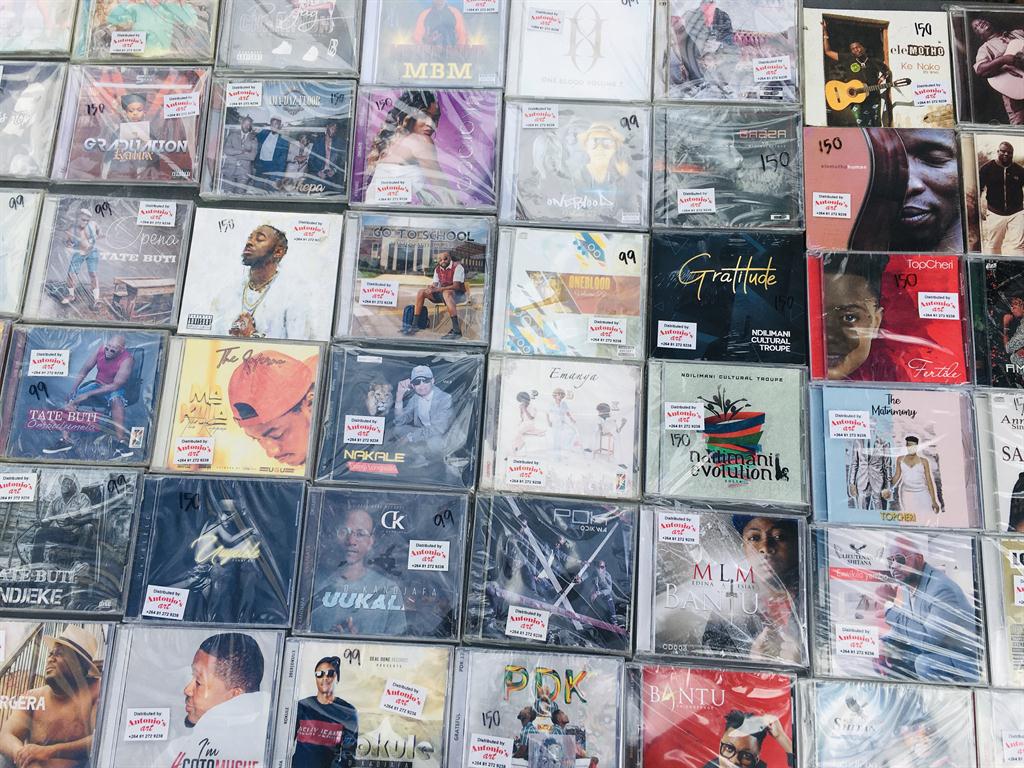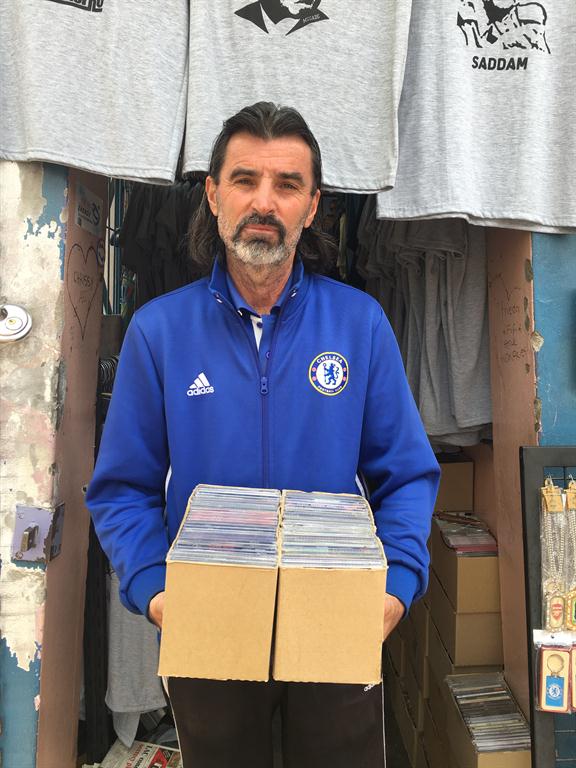Sustaining the sales of physical CDs
With digitalisation taking over everything these days, the music industry is one of the most affected.
It's been said that in order for anyone to make their dream come true, they will need a team to be fully equipped to achieve.
Even though still relatively young, the Namibian music industry has achieved things deemed impossible over the years, but the culture really took the spotlight the moment The Dogg (now known as King Tee Dee), Gal Level and Gazza started bringing home continental awards in categories that featured artists from countries with huge populations.
This phenomenon has continued, with Namibian acts getting nods from the continental Rockstar Awards recently.
However, the sale of physical CDs has declined even for the biggest artists. tjil spoke to Namibian music distributor Dragan Djovic, better known as Antonio, who plays a major role in keeping the culture alive.
According to Antonio, the decline in the sale of physical CDs can be attributed to the current economic crisis and, to a certain extent, the digitalisation of music. Despite these, Antonio maintains that there is still a market for physical copies in Namibia, it is just a matter of exploring other means of making these copies available.
It is for this reason that in the last two years he has partnered with petrol stations to sell Namibian CDs. “Even with this initiative, I still experience a lot of challenges but I will not give up because I am aware there is a market.
“I do not like to call it my initiative because it benefits a lot of parties. It benefits music consumers, artists, me as a businessman and the petrol stations,” Antonio said.
He shared that he currently sells CDs to 35 Engen, 15 Shell and five Total service stations. He further added that he is in talks with Puma service stations as well. “Because of the limited space we are granted in these stores, I am only able to sell CDs by the top 15 selling artists here at Antonio's Art,” he shared.
Sakaria Hiyandjua, the manager at Otavi Shell service station, told tjil that CDs of established artists sell faster than CDs by new artists. He attributes this to the following established artists have garnered over the years. “We applaud Antonio for this initiative because Namibian music is now available countrywide.
“Because of where we are situated, we have had Namibian artists pass by and comment on the initiative because it is bringing music to the people,” Hiyandjua said.
Saara Mutota, the manager of Engen service station at Eenhana, said in the north, sales aren't bad, but more still needs to be done to inform the masses that they can purchase music at these outlets. “We are doing well, it is just a matter time until the message is spread out to a lot of people,” she said.
Emphasising why there is still a market for physical CDs in Namibia, Antonio said: “Namibia has around 40 000 legal and illegal jukeboxes. This is unofficial information but it is what we work with.
“If we have about 40 000 jukeboxes and artists only sell 2 000 copies, then something is wrong, because there are certain artists whose albums are supposed to be in every jukebox.”
Antonio shared that he is doing research on companies in South Africa that can replace CDs with USBs but ensure that there are encryptions in place to avoid piracy. “For artists signed to Deal Done Records, this is the direction we will be taking soon, we will have CDs and USBs.
“There are certain cars that do not take CDs any more so this USB option will come handy for those music consumers,” Antonio said.
Afro pop and traditional musician Lieutenant Shitana, who is vocal about combating music piracy, told tjil that Namibia's copyright act is flawed. “So far, we made a proposal to the Namibian Society of Composers and Authors of Music (Nascam) and the Business and Intellectual Property Authority (Bipa) because we would like for this act to be reformed so that it can actually benefit composers,” he said.
MICHAEL KAYUNDE
Even though still relatively young, the Namibian music industry has achieved things deemed impossible over the years, but the culture really took the spotlight the moment The Dogg (now known as King Tee Dee), Gal Level and Gazza started bringing home continental awards in categories that featured artists from countries with huge populations.
This phenomenon has continued, with Namibian acts getting nods from the continental Rockstar Awards recently.
However, the sale of physical CDs has declined even for the biggest artists. tjil spoke to Namibian music distributor Dragan Djovic, better known as Antonio, who plays a major role in keeping the culture alive.
According to Antonio, the decline in the sale of physical CDs can be attributed to the current economic crisis and, to a certain extent, the digitalisation of music. Despite these, Antonio maintains that there is still a market for physical copies in Namibia, it is just a matter of exploring other means of making these copies available.
It is for this reason that in the last two years he has partnered with petrol stations to sell Namibian CDs. “Even with this initiative, I still experience a lot of challenges but I will not give up because I am aware there is a market.
“I do not like to call it my initiative because it benefits a lot of parties. It benefits music consumers, artists, me as a businessman and the petrol stations,” Antonio said.
He shared that he currently sells CDs to 35 Engen, 15 Shell and five Total service stations. He further added that he is in talks with Puma service stations as well. “Because of the limited space we are granted in these stores, I am only able to sell CDs by the top 15 selling artists here at Antonio's Art,” he shared.
Sakaria Hiyandjua, the manager at Otavi Shell service station, told tjil that CDs of established artists sell faster than CDs by new artists. He attributes this to the following established artists have garnered over the years. “We applaud Antonio for this initiative because Namibian music is now available countrywide.
“Because of where we are situated, we have had Namibian artists pass by and comment on the initiative because it is bringing music to the people,” Hiyandjua said.
Saara Mutota, the manager of Engen service station at Eenhana, said in the north, sales aren't bad, but more still needs to be done to inform the masses that they can purchase music at these outlets. “We are doing well, it is just a matter time until the message is spread out to a lot of people,” she said.
Emphasising why there is still a market for physical CDs in Namibia, Antonio said: “Namibia has around 40 000 legal and illegal jukeboxes. This is unofficial information but it is what we work with.
“If we have about 40 000 jukeboxes and artists only sell 2 000 copies, then something is wrong, because there are certain artists whose albums are supposed to be in every jukebox.”
Antonio shared that he is doing research on companies in South Africa that can replace CDs with USBs but ensure that there are encryptions in place to avoid piracy. “For artists signed to Deal Done Records, this is the direction we will be taking soon, we will have CDs and USBs.
“There are certain cars that do not take CDs any more so this USB option will come handy for those music consumers,” Antonio said.
Afro pop and traditional musician Lieutenant Shitana, who is vocal about combating music piracy, told tjil that Namibia's copyright act is flawed. “So far, we made a proposal to the Namibian Society of Composers and Authors of Music (Nascam) and the Business and Intellectual Property Authority (Bipa) because we would like for this act to be reformed so that it can actually benefit composers,” he said.
MICHAEL KAYUNDE






Comments
Namibian Sun
No comments have been left on this article